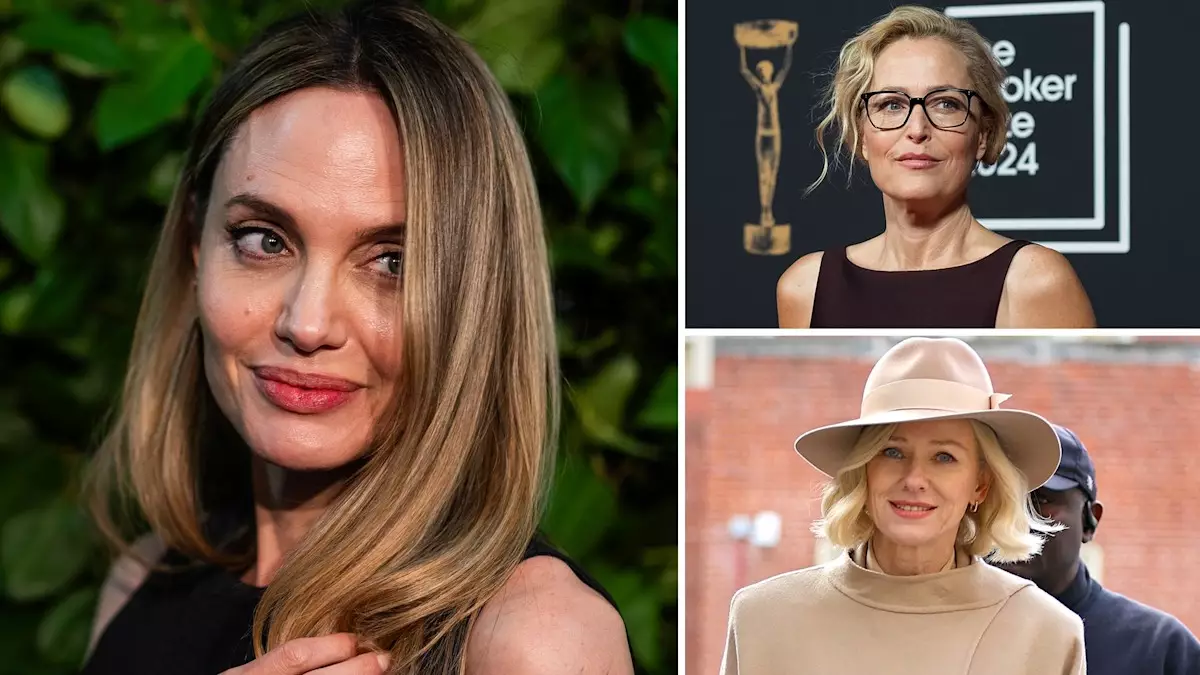In mainstream culture, especially within the glitz and glam of Hollywood, the word ‘menopause’ has often been shrouded in stigma and silence. The very mention of it conjures images of aging, irrelevance, and a perceived decline in vitality—a narrative that many stars have shied away from acknowledging openly. This societal taboo has not only affected celebrities but also echoed through the lives of countless women who mirror their experiences in the real world. The reluctance to embrace discussions surrounding menopause has perpetuated a culture of ignorance that can be detrimental to women’s mental and physical health.
Despite this longstanding stigma, a few courageous celebrities are beginning to pave the way for a more honest dialogue about menopause and, more specifically, perimenopause. Previously obscured by fear of judgment, these narratives are essential in helping society understand that this life stage is a natural, albeit challenging, part of a woman’s journey. A significant step in this direction has been taken by the hormone testing company Oova, which revealed through their research that a staggering 25% of women experience perimenopausal symptoms as early as their 30s—an age when most women typically consider themselves in their prime.
A notable voice in this conversation is actress Naomi Watts, who was only 36 when she first faced perimenopausal symptoms. In her upcoming book, “Dare I Say It, Everything I Wish I’d Known About Menopause,” Watts candidly recounts her experiences with symptoms such as mood swings and night sweats—issues often misattributed to stress or other factors. Watts articulates the chaotic feelings that accompany early menopause, emphasizing the need for more comprehensive discussions surrounding the topic. Her perspective resonates with findings from Oova, which indicate that over 60% of women are unaware of their perimenopausal status when symptoms begin.
Gillian Anderson, another influential figure in this narrative, echoes Watts’ sentiment in her own journey. Upon experiencing sudden mood swings and feelings of overwhelm, she realized that her hormonal changes were at play. In conversations with friends, she recognized the need to address these changes openly rather than suppressing them. Anderson’s transformation from confusion to empowerment demonstrates the importance of dialogue. “How wonderful would it be if we could get to a place where we are able to have these conversations openly and without shame?” she ponders, advocating for a communal acceptance of menopause.
Both Watts and Anderson are shifting the narrative from one of negativity and fear to a celebratory acknowledgment of menopause as a rite of passage. This reframing is not merely about addressing symptoms but also about fostering a culture where women can lean on one another for support and share their experiences. The importance of recognizing the psychological and emotional impact of this transition is paramount, as many women endure feelings of isolation during this time.
The voices of these actresses contribute to a growing movement that encourages women to speak up about their experiences. This new cultural awareness is crucial not only for those currently experiencing menopausal symptoms but also for younger women who will eventually navigate this life stage. Educating them about what to expect can significantly reduce the feeling of being alone in their struggles.
As conversations around menopause gain momentum, it’s imperative that society dismantles the stigma and celebrates the transition into this new phase of life. The openness from actresses like Naomi Watts and Gillian Anderson presents a refreshing contrast to the long-standing silence about menopause in Hollywood. By addressing these topics candidly, they inspire a generation of women to embrace their journeys rather than hide from them.
Through continued dialogue, we can cultivate an environment that respects and honors the experiences of all women as they transition through perimenopause and menopause. The journey may be fraught with challenges, but by breaking the silence, we ensure that no woman feels alone in her experience—transforming this once-taboo topic into a shared story of strength and resilience.

